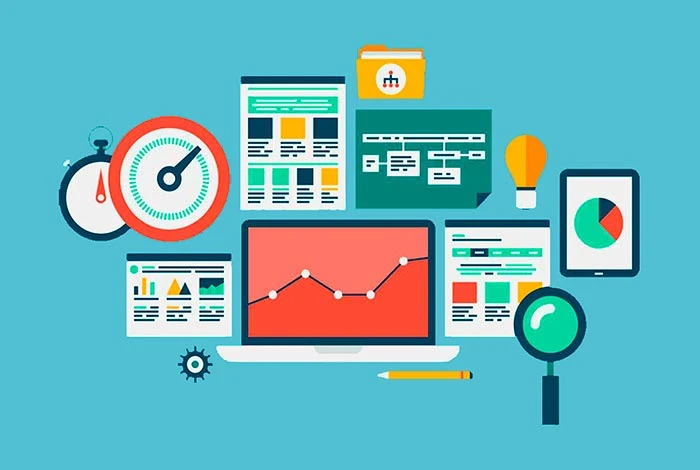Summary: Understand different project management software types, along with their unique functionalities and limitations. Identify and implement the one that best suits your project, teams, and organisation’s requirements.
Traditional pen-and-paper project management only results in project failures with delayed timelines, duplication of tasks, underutilised resources, and an excess of unwanted paperwork.
All this can be easily eliminated by using the right project management software that is best suited for your business. No matter if you are a solopreneur or an enterprise owner, there are different project management software types for you.
You can opt for agile or collaborative project management software that is cloud-based or on-premises. Further, you can choose between free project management software and premium versions depending on your budget and project complexity.
Let’s understand what’s unique about every type of project management software and if it is suitable for you or not.
What Is Project Management Software?

Project management software allows businesses to manage project scheduling, planning, and budgeting. Its main purpose is to track project-related tasks and facilitate real-time collaboration between employees. Users can easily assign tasks, mention their peers, upload & share documents, add links, and do a lot more using the software.
In addition to this, project management software helps leaders estimate the project timeline, along with making accurate cost assumptions. Moreover, users can also track the time spent on a project and its individual tasks.
| Statistics that You Can’t Miss 1. Organisations that rely on project management tools have a 192% success rate of accomplishing objectives. 2. Almost 80% of project managers think that managing the project portfolio is key to determining how successful a business is. 3. The total market size of the IT project & portfolio management (IT PPM) sector is estimated to gain a revenue of 4.57 billion U.S. dollars, stated to Statista 2024. 4. With regard to the global project management software market, Jira holds a 24.39% share. 5. By 2027, there will be a need for 87.7 million project managers worldwide. |
7 Different Project Management Software Types
Project management software helps freelancers, small businesses, and even large enterprises manage their tasks, timelines, resources, and more while ensuring successful project deliveries. However, you might not find a one-size-fits-all solution for your specific projects.
That’s where you need to make a well-informed choice and select project management, best solution from the different project management software options available in the market. Let’s understand what’s unique about the different types of project management software.
1. Task Management Software
Teams can monitor the status of individual assignments and their progress by using task management software. It functions similarly to a digital to-do list, keeping everyone organised. You can set deadlines, give tasks to team members, and monitor task progress with this software.
It’s ideal for managing everyday tasks, making sure nothing gets missed, and maintaining everyone’s understanding of what has to get done.
Key Features:
- Task creation and assignment
- Due dates and reminders
- Priority setting
- Progress tracking
- Simple reporting
Examples: Todoist, Microsoft To Do
Best For: Teams and individuals who need to manage specific tasks and workflows efficiently.
2. Collaboration Software
The main goal of collaboration tools is to improve the efficiency of teams in cross-functional departments. This type of software makes it possible for team members to collaborate on projects in real time, transfer files with ease, and work remotely.
The functions of collaborative tools in project management software include easy communication, sharing ideas, and providing prompt feedback from managers.

Slack
Starting Price
₹ 245.25 excl. GST
Key Features:
- Real-time messaging and chat
- File sharing and storage
- Team discussions and feedback
- Integration with other tools
Examples: Slack, Microsoft Teams, and ClickUp’s collaboration tools.
Best For: Teams that require strong communication channels and need to collaborate on projects in real-time.
3. Project Planning Software
Software for project planning is intended to assist teams in developing comprehensive project plans. It aids in resource allocation, deadline planning, and project mapping from beginning to end.
The project timeline is visually represented by this program, which facilitates tracking progress and necessary adjustments. It functions similarly to a project blueprint that leads you through each phase of the undertaking.

Asana
Starting Price
$ 13.49
Key Features:
- Gantt charts
- Task dependencies
- Resource allocation
- Milestone tracking
- Timeline views
Examples: Microsoft Project, Asana
Best For: Project managers and teams who need to create and maintain detailed project schedules.
4. Workflow Management Software
Recurring tasks and workflows can be automated and streamlined with the use of workflow management software. These tools work as a digital assistant for managers and ensure the completion of tasks as suggested in the workflow.
This project management tool type lessens hard work, standardises workflows, and reduces time wastage, which increases efficiency.
Key Features:
- Workflow automation
- Process mapping
- Task routing
- Performance tracking
- Integration with other systems
Examples: Monday.com, ProcessMaker, Trello
Best For: Organisations looking to improve operational efficiency through automation and standardised processes.
5. Resource Management Software
Resource management tools help teams in effectively managing individuals, tools, and resources. It keeps you from overusing or underusing resources and guarantees that you have the appropriate ones on hand when you need them.
This project management software type functions similarly to a resource planner. It assists you in the efficient distribution of resources so that every aspect of a project is maintained and completed on schedule.

Jira
Starting Price
$ 17.00
Key Features:
- Resource scheduling
- Capacity planning
- Utilisation tracking
- Budget management
- Resource forecasting
Examples: Resource Guru, ClickUp, Jira.
Best For: Teams that need to manage and allocate resources across multiple projects.
6. Portfolio Management Software
With portfolio management software, you can get a list of every project that a business is working on. It helps in organising and prioritising several projects and making sure they complement the objectives of the company.
With the help of the best project management software, you can keep track of how various projects are doing and how resources are being used at every level. It functions similarly to a project dashboard that supports tactical decision-making.
Key Features:
- Portfolio planning
- Strategic alignment
- Risk management
- Performance metrics
- Resource allocation
Examples: Clarizen, Planview
Best For: Executives and senior managers who need to oversee and align multiple projects with strategic business goals.
Agile Project Management Software
Agile project management tools are intended for users who use agile approaches, prioritise adaptability, and incremental development. This type of project management software facilitates a methodology that breaks down projects into small, manageable components. It guarantees that the project changes in response to real-time input and assists teams in quickly adapting to changes.

Notion
Starting Price
$ 12.00
Key Features:
- Sprint planning and tracking
- Kanban boards
- Backlog management
- User stories and epics
- Continuous feedback loops
Examples: Jira, Trello, Notion.
Best For: Development teams and organisations that follow Agile or Scrum methodologies.
Suggested Read: Business Use Cases of Project Management Software
Conclusion
Project management software enables businesses to manage and track their tasks on a centralized platform. It helps in increasing inter and intra-team coordination across departments, resulting in timely project deliveries.
However, it is equally important for managers to select the right PMS functions from different project management software types that best suit their business. For instance, solopreneurs can go for individual project management software, where a single user can manage all their tasks.
However, if you work in a team, you can choose to implement a collaborative PMS. In addition to this, if you are just getting started with using a PMS tool, you can start by implementing a free project management software.
Related Categories: Workflow Management Software | Task Management Software | Product Management Software | Scrum Tools
Jasmeet is a bilingual content writer with proven expertise in creating B2B content across digital and print platforms to support Sales & Marketing. She is a dynamic content specialist with 4+ years of experience collaborating with industry giants like X, Unilever, Yell UK, Tej Bandhu Group, and Veoci... Read more





























